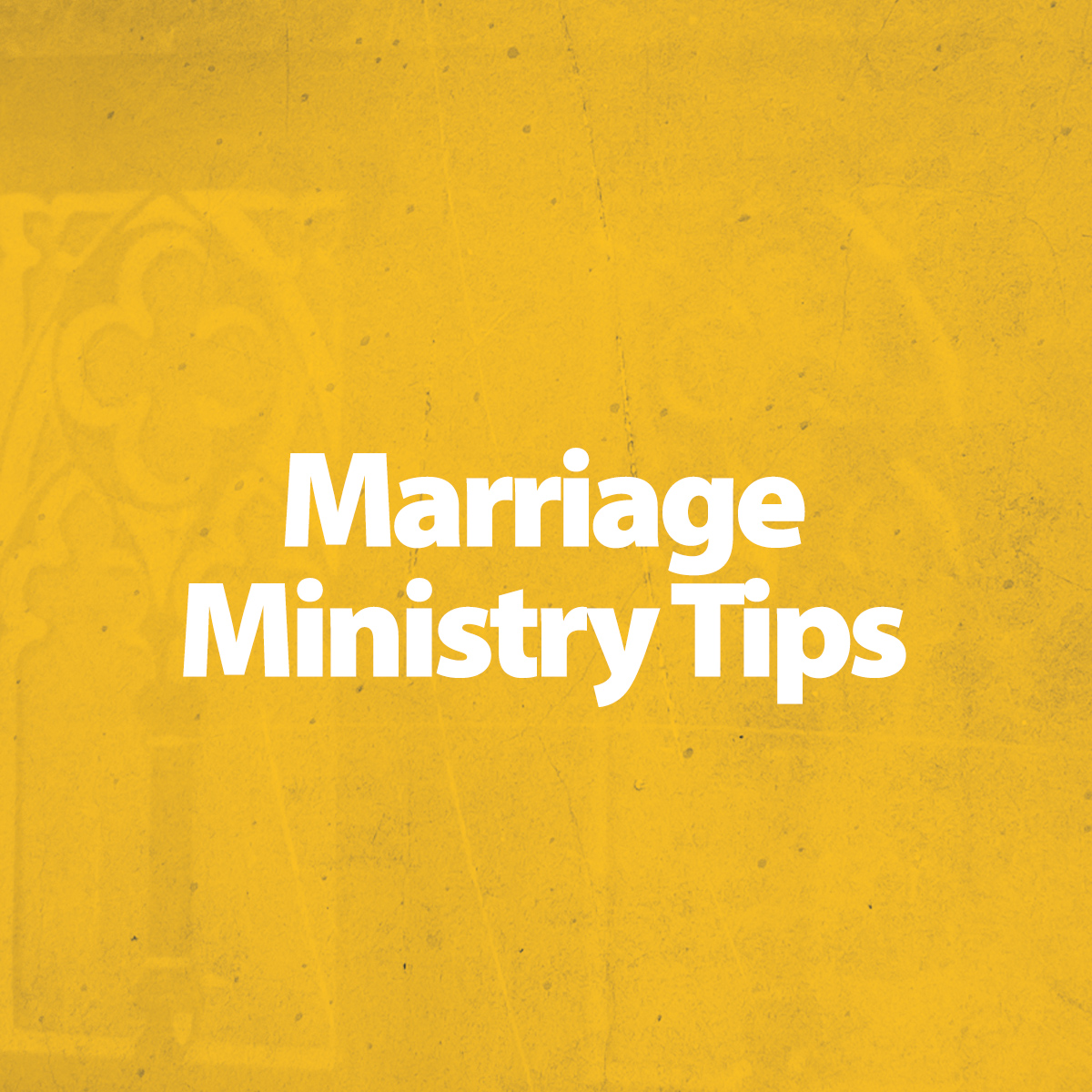You already know from your pastoral experience that more and more Catholics are marrying spouses who are not Catholic. In 2001 The American Religious Identification Survey reported that 23 percent of Catholics were married to a spouse with a different religious identification. Emily Lemmons writes in an article published in the “For Your Marriage” website that in regions of the United States where Catholics are fewer, as many as 40 percent of married Catholics may be married to a Christian who is not Catholic (an ecumenical marriage) or to a person of another faith tradition such as Judaism or Islam (an interfaith marriage).
Various authors writing on this subject point out that the rise in mixed marriages is a sign of increased tolerance in American society and it may also be evidence of the declining role of faith and religious identity in the life of many young people.
New York Times columnist David Brooks has dubbed the years between college and marriage as the “odyssey years.” As marriage is postponed a person’s attachment to his or her religious community and faith tradition grows weaker. Often differences in faith or religion become insignificant when two people are in love. This difference cannot be overlooked in marriage preparation because differences in religious belief and practice can increase the challenges a couple will face in marriage as they work to blend two lives.
Evelyn Lehrer, a professor at the University of Illinois at Chicago found that when a Catholic marries a member of an evangelical denomination they have a one in three chance of divorce. When a Christian and a Jew marry she found they have more than a 40 percent chance of divorcing within five years.
Differences in religious faith affect many aspects of a couple’s life. Most engaged couples are not likely to foresee or discuss these unless they are guided to explore them in the marriage preparation process. Lehrer points out that a difference in faith impacts the lives of couples not simply in regards to where they worship, but also childrearing time and money management, friendships, professional networks, and where a couple chooses to live. In other words, the points of disagreement between spouses of different religious affiliation can be considerable. How do we care for the couples of mixed religious background that want to marry in our Catholic parishes?
1. Help Them Feel Welcomed
The fact that couples come to the Church for a religious wedding likely indicates that faith, although it may be weak, plays a role in their decision to marry. Sometimes this role is as tiny as a parent or grandparent’s urging that they be married in the Church or as incidental as marrying in the Church is simply what the family has always done. Even still, these situations provide you with the wonderful opportunity to welcome these couples and introduce them to Christ and his Church in a new way. By taking interest in them and inquiring about what they are seeking we can help them find a common understanding of sacramental marriage if both are baptized Christians or help them develop a spiritual understanding of marriage if they are preparing for an interfaith marriage. Pope Francis exhorts us to help those who come to the Church to feel the tenderness of a Mother.
2. Welcome the Opportunity for Catechesis
The National Directory for Catechesis (NDC) emphasizes the importance of catechesis at this point in the lives of young people. Its purpose at this stage is to:
. . . assist couples in deepening their understanding of the nature of Christian marriage as a covenant between a man and a woman whereby the spouses establish between themselves a partnership of their whole life that is ordered to the well-being of the spouses and to the procreation and upbringing of children. Catechesis for those preparing for ecumenical or interreligious marriages should encourage them to discuss openly and honestly the challenges (National Directory for Catechesis, p. 144).
In addition, the document states that the engaged couples should consider the opportunities that their respective faith traditions bring to their relationship, to the education and formation of their children, and to the harmony of the family.
3. Probe Their Readiness
It is crucial that we help interfaith couples discuss key areas of their lives that will be impacted by their differences in faith. The following are important questions to ask as you work through the materials of Joined by Grace:
- What obstacles do you foresee in your married life because of your different religious traditions?
- What support or resistance are you receiving from your families regarding your different faiths?
- How will you respond to family members who may not accept the spouse who is from a different church or faith?
- How is the difference in religious background impacting the wedding ceremony?
- In which faith-community will you become involved as a couple?
- Will your involvement in the faith community or communities be joint or will each participate separately?
- How will you raise children? (Review the promises that the Catholic party is making) Surveys show that it is best when children are raised in one faith tradition. It is not wise to raise the children in both traditions, nor to deprive them of the experience of a faith community until they can decide for themselves.
- How will you as a couple and as a family have a common spirituality that can help you grow in unity through a spiritual sense of purpose for your life together?
- Where do you find common ground in your religious beliefs?
- How willing are you to learn about each other’s religious traditions?
The more a couple anticipates potential obstacles and opportunities and makes plans together for dealing with these, the better it is for their marriage.
4. Use Pre-marital Inventories
Many dioceses urge or require the use of a pre-marital inventory as engaged couples begin the marriage preparation process. These can help each spouse-to-be identify his or her values and habits and explore together the areas of opportunity and difference.
Many parishes have staff members trained to administer and guide the couple using these tools. There are several excellent inventories on the market that currently used by parishes. See the last section of chapter 3 in the Program Manual.
5. Follow Up
Given the fragility of young marriages and the obstacles that ecumenical or interfaith couples will encounter in the first months and years of marriage, it is important for the parish community to stay in contact and close to them. Providing them with mentors who are or have been in mixed marriages themselves, and introducing the engaged to couples in the parish who are from different faiths can give the spouses-to-be a connection with the community and with people who have experienced the challenges they are likely to face.

